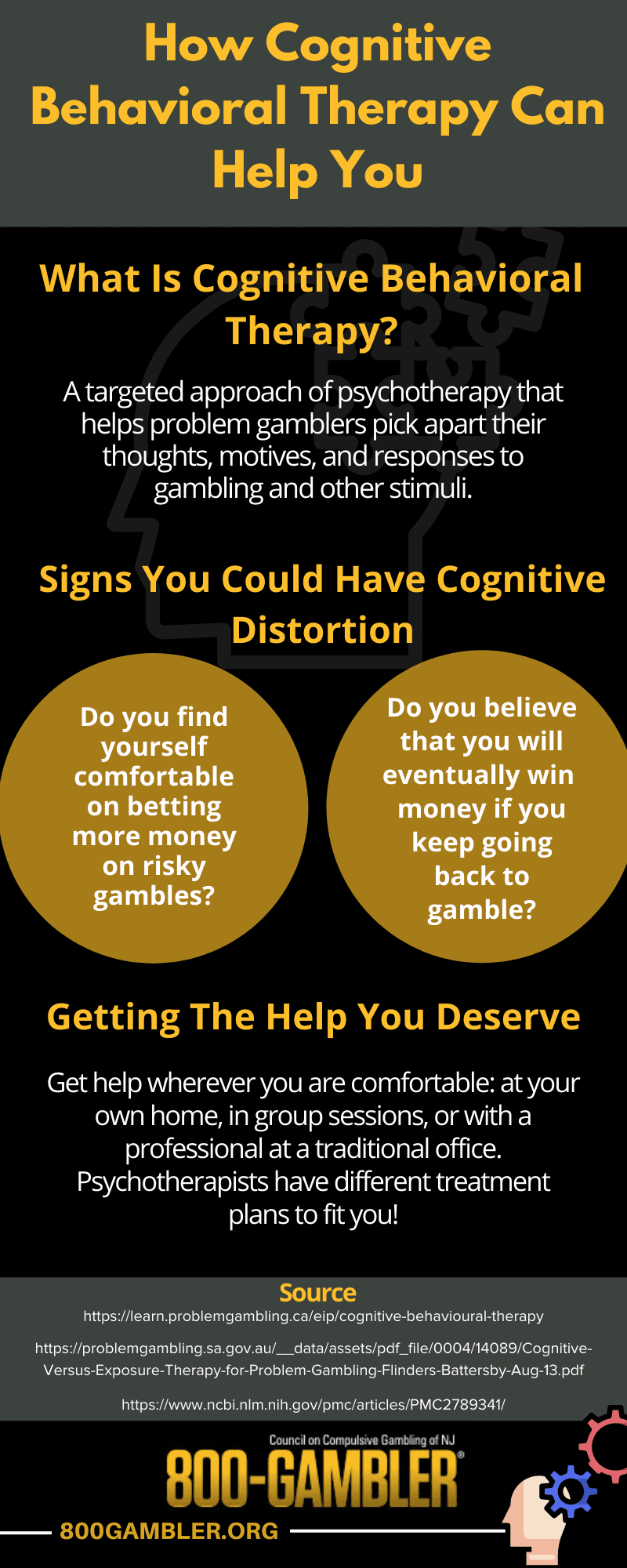Getting help with problem gambling isn’t anything to be ashamed of or worried about. There are many treatment options available today, with one of the more common approaches being cognitive behavioral therapy. This technique is so effective with problem gambling patients due to the fact that consistent or excessive gambling can be directly related to cognitive distortion, meaning your thought processes are not what you want them to be.

What Is Cognitive Behavioral Therapy?
Cognitive behavioral therapy, or CBT, is a targeted approach of psychotherapy that helps problem gamblers pick apart their thoughts, motives, and responses to gambling and other stimuli. By breaking down the relationship between the client’s gambling and thoughts, CBT can help to re-establish healthier and more ideal connections between the two. This means the intrusive or compulsive thoughts towards gambling can be silenced, allowing players to regain control of their favorite recreation.
Signs of Cognitive Distortion
Finding signs of distortion in one’s own thoughts can be a challenge as we can never truly be completely unbiased with ourselves. Some tell-tale signs are seemingly innocent, such as the classic lucky troll doll that can make you comfortable betting more or falling into the gambler’s fallacy of thinking you’ll eventually win your money back if you keep going.
It Doesn’t Require One-On-One Sessions
CBT is thankfully in the camp of being accessible by both individuals or in a group session. The efficient and rapid methods used can be employed in a traditional office setting with a professional, in a low-pressure team environment, or even on your own in the comfort of your home. Understanding how personal these matters can be, psychotherapists have created many different self-administered treatment plans for those wanting to retain their independence and prove they can overcome any problem gambling they may have.
Please don’t hesitate to seek out the help and resources you deserve. Regain your life with 800-GAMBLER with our 24/7 helpline today.
Sources:
https://learn.problemgambling.ca/eip/cognitive-behavioural-therapy



